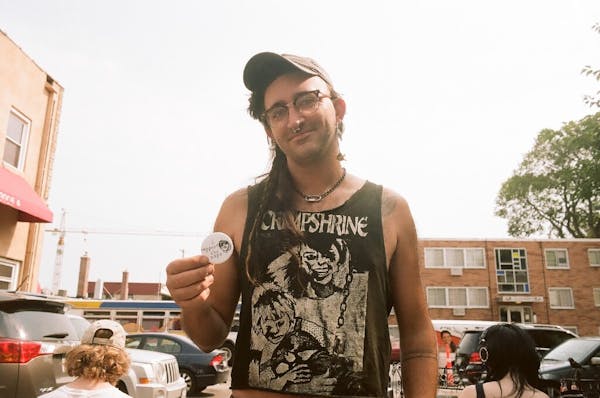Scott Rall has been good for Pheasants Forever.
Over the past two years as a member of a state council that recommends Legacy money for outdoors groups, Rall has voted to give $30 million in taxpayer money to Pheasants Forever projects.
During that time, he also served as president of the Nobles County Pheasants Forever chapter. Last year, Pheasants Forever named him its Minnesota Volunteer of the Year.
As hundreds of millions of dollars in state sales tax money pass through the council to outdoors projects, Rall illustrates the thin ethical line emerging as new state rules encourage people with hunting and fishing expertise to sit on the panel. While the rules state that members must disclose potential conflicts of interest because of their ties to a group seeking funding, the rules also note that simply belonging to a group is not a conflict.
Rall says he has no conflict of interest. A top official with the Lessard Sams Outdoor Heritage Council, upon reviewing Rall's claim, agreed. A spokesperson for Gov. Mark Dayton, who last week reappointed Rall to the council, said Rall's association with Pheasants Forever poses no problem.
Outdoors groups contend that they have the expertise needed to guide the spending of the money and ensure that it is not diverted to plug the state's latest fiscal deficit.
Passed by voters in 2008, the Legacy constitutional amendment raised the state sales tax by a small fraction for 25 years to fund projects in four separate categories: the outdoors, clean water, parks and trails, and arts and cultural heritage.
Since then, the council has recommended $231.4 million for outdoors projects -- about a third of the overall Legacy funds distributed so far.
In those three years, the Legislature has regularly followed the recommendations of the 12-member panel, which includes several legislators.
While Rall has been the most visible in voting to fund projects for a group he belongs to, he is not the only one.
Council member James Cox, also on the board of the Minnesota Valley National Wildlife Refuge Trust, did not participate in December discussions on a $5 million project involving the refuge, but he did vote for the council's overall funding recommendations, which included the project.
Similarly, council member David Hartwell, a founder and chair of the Minnesota Land Trust, disclosed his membership when the council recommended $1.2 million for the group's project. He also voted for the council's overall recommendations that included Land Trust funding.
'What's the conflict?'
"Because I sit on the board of something, what's the conflict of interest?" Cox asked. "If it's part of that [overall] bill, you know, then you vote on the overall bill. You had no bearing on that part being included."
Former Sen. Lisa Fobbe, DFL-Zimmerman, who sat on the council until last month, says she was troubled by what she saw. The process would be better, she said, if council members were not "directly connected to any of those groups, or if they are, they definitely should not be voting on those projects."
Fobbe said that while hunting and fishing organizations should be represented, "what's even more important is who's going to really watch over ... the taxpayers' money."
Rall has not hidden his preferences.
When Pheasants Forever requested $9.8 million in December to accelerate a waterfowl production area program, he was one of four council members to recommend the full amount. In the end, even though a majority of members initially voted against the entire amount, the council recommended the full amount.
At the same time, Pheasants Forever sought another $7.7 million for a wildlife management area program. Rall was one of only two council members to recommend that much. The council ultimately recommended that the group get $5.5 million.
Rall said that at one point he sought advice from the council's legal counsel, Greg Knopff, on potential conflicts. Knopff said there was no conflict because none of the money Rall had recommended would go to Nobles County.
"I am not a paid employee of Pheasants Forever," Rall said. "To me, a conflict of interest is where an individual would individually gain ... Scott Rall does not in any fashion personally gain anything."
But Knopff said that council members "do have to be careful, because if they're more than just a member [of an organization] and they vote on a project ... they really should stay away from those."
The council's rules on conflicts can be confusing.
State officials, for example, are urged to consider "varying interests including hunting and fishing" when appointing members. But the council's own regulations note that a conflict can include "an organizational conflict of interest" which "present[s] the appearance that it will be difficult for the person to impartially fulfill the person's duty."
An organizational conflict, according to the council's rules, exists "when a person has an affiliation with an organization" that has business before the council. The rules add that no organizational conflict exists if a person's only affiliation with an organization is membership. What type of affiliation would constitute a conflict is not spelled out.
"It is perfectly natural that [council] members are and should be members of conservation organizations," said Bill Becker, the council's executive director. "Membership in [those groups] is one possible proof of qualification for serving on the council."
Becker, who reviews possible conflicts with council members, said that Rall had no conflict.
"People are trying to pick this thing apart and bring it down," Dan Richmond, the president of another large Pheasants Forever chapter, said of the criticism regarding the council. "[Rall's] an avid hunter and avid outdoorsman. ... He's done a bang-up job" for Pheasants Forever in Nobles County.
"Sometimes, people get caught up in all the various groups," Richmond added. "It's not just Trout Unlimited or Pheasants Forever or Ducks Unlimited ... It's concerned citizens."
Mike Kaszuba • 651-222-1673
